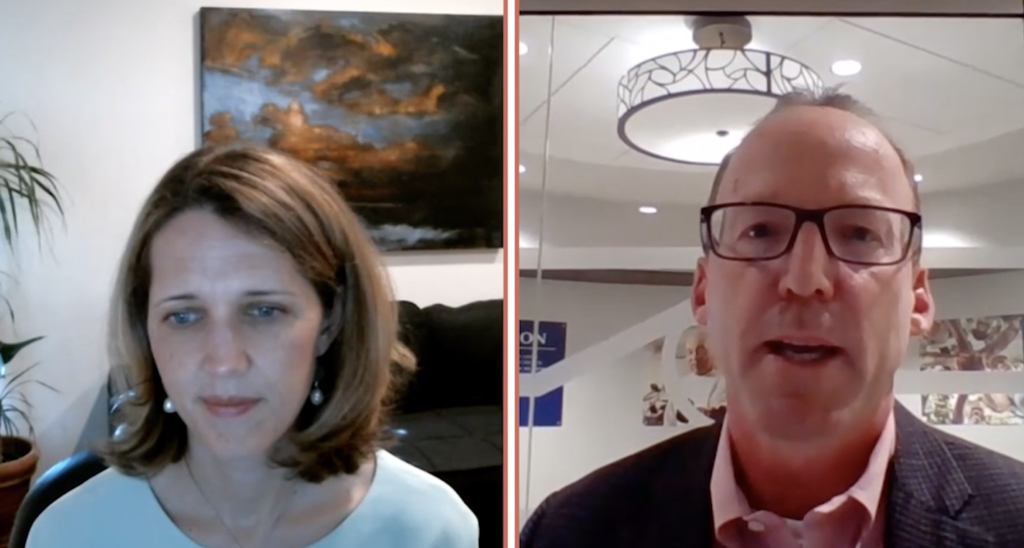Having a vaccination policy in place for employees could be a useful tool for nursing home and other long-term care operators ahead of the release of a potential coronavirus vaccine, legal experts said Tuesday.
“I do think [a COVID-19 vaccine] is going to be a lot more complicated than the flu vaccine just because it’s so controversial and we’ll have multiple vaccines coming out,” said Bethany Ghassemi, general counsel for HumanGood, a California-based senior living operator.
“We could be dealing with all sorts of unknowns, but we can only do our best and the best preparation is to think through it in advance and have systems that will come to bear,” she added.
Ghassemi’s comments came Tuesday during a virtual session during LeadingAge’s annual meeting and expo. She, along with Asbury Communities general counsel Andrew Joseph, discussed lessons learned from policies and structures across different legal and operational areas during the ongoing public health crisis.
Joseph noted that several years ago Asbury implemented a mandatory vaccine program for all employees across the entire system. The policy also includes a committee review for employees who want to be an exception to the requirement.

“We have a formal process that includes submission of reason for objection and supporting documentation, e.g., physician support. All is submitted to a committee for review,” Joseph explained during the Q&A portion of the discussion.
He also noted that if operators can’t mandate employees get the vaccine, then the assumption would be for them to “carry forward fairly strict” personal protective equipment requirements and non-invasive screening procedures.
Long-term care providers should have easy access to a coronavirus vaccine once ready after the federal government announced a partnership with CVS and Walgreens to administer doses free of charge to facilities. Preparation could be key in the vaccine’s distribution among employees, Ghassemi warned.
“Vaccines are going to be a huge challenge and it’s definitely one of the things, looking forward, that keeps me up at night,” Ghassemi said. “Having a vaccination program in place already will be extremely useful.”
The two also answered questions on any regulation changes they foresee sparked by the pandemic. Joseph noted that heightened infection control will stay, or at minimum, be the baseline for every flu season going forward.
“So all the special training, PPE, etc. will be expected in [skilled nursing facilities] and [assisted living], and affect residential living, as well,” he explained.





